
SPE JOURNAL
Scope & Guideline
Cultivating Insights for a Sustainable Energy Future
Introduction
Aims and Scopes
- Reservoir Engineering and Management:
Research on the characterization, modeling, and management of oil and gas reservoirs, including enhanced oil recovery techniques and reservoir simulation. - Hydraulic Fracturing and Well Stimulation:
Studies on hydraulic fracturing methods, proppant transport, and the optimization of stimulation techniques to improve well performance. - Drilling Technology and Operations:
Innovations in drilling technologies, including new drilling fluids, bit design, and real-time monitoring techniques to enhance drilling efficiency. - Production Technology and Optimization:
Investigations into production techniques, including artificial lift systems, flow assurance, and production optimization in unconventional reservoirs. - Geomechanics and Rock Physics:
Research on the mechanical behavior of rocks under various conditions, including the impact of geomechanical factors on reservoir performance and hydraulic fracturing. - Environmental and Sustainability Considerations:
Exploration of sustainable practices in oil and gas operations, including CO2 sequestration, water management, and the impact of operations on the environment. - Data Science and Machine Learning Applications:
Application of data-driven techniques and machine learning algorithms to enhance reservoir characterization, production forecasting, and operational efficiency.
Trending and Emerging
- Machine Learning and AI Applications:
There is a growing trend in utilizing artificial intelligence and machine learning techniques for predictive modeling, optimization, and data analysis in various aspects of petroleum engineering. - Enhanced Oil Recovery (EOR) Innovations:
Research focused on novel EOR techniques, especially those leveraging CO2 injection and hybrid methods, has gained traction as operators seek to maximize recovery from mature fields. - Sustainable Practices and Environmental Impact:
An increasing number of studies address sustainability and environmental considerations, including carbon capture and storage, water management, and minimizing the ecological footprint of oil and gas operations. - Multiscale and Multiphase Flow Studies:
The complexity of flow behavior in reservoirs is being increasingly recognized, leading to more research on multiscale and multiphase flow dynamics, particularly in unconventional reservoirs. - Integration of Real-Time Data and Monitoring Technologies:
There is a notable increase in research on real-time monitoring and data integration technologies, which enhance operational efficiency and decision-making processes in drilling and production.
Declining or Waning
- Conventional Oil Recovery Techniques:
Research on traditional methods of oil recovery has seen a decline as the industry shifts towards more innovative and sustainable approaches, particularly in unconventional reservoirs. - Chemical Flooding Techniques:
While still relevant, the frequency of studies specifically focused on traditional chemical flooding has decreased, possibly due to the rise of more advanced, hybrid methods that combine multiple recovery techniques. - Single-Phase Flow Studies:
Research concentrating solely on single-phase flow in reservoirs is less prevalent as the industry increasingly focuses on multiphase flow dynamics and their implications for enhanced oil recovery. - Geological Modeling without Data Integration:
There is a noticeable reduction in standalone geological modeling studies that do not incorporate advanced data analytics or machine learning techniques, reflecting a trend towards integrated approaches. - Field Case Studies in Isolation:
The journal has seen fewer publications of isolated field case studies that lack comprehensive analysis or broader applicability, as researchers now favor studies with wider implications and interdisciplinary insights.
Similar Journals
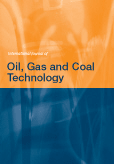
International Journal of Oil Gas and Coal Technology
Navigating the Frontier of Energy SustainabilityWelcome to the International Journal of Oil Gas and Coal Technology, a key platform for research and innovation in the energy sector, published by INDERSCIENCE ENTERPRISES LTD. With an ISSN of 1753-3309 and an E-ISSN of 1753-3317, this journal has been serving the academic community since its inception in 2008, continuing through to 2024. Located in the heart of Geneva, Switzerland, this journal focuses on the essential fields of oil, gas, and coal technologies, addressing cutting-edge developments and challenges in energy production and sustainability. Although currently categorized in the fourth quartile in Energy (Miscellaneous) and holding a Scopus rank in the 26th percentile, the journal aims to enhance its visibility and impact through rigorous peer-reviewed research articles, critical reviews, and insightful case studies that are accessible to the global academic community. Researchers, professionals, and students alike will find valuable insights and advancements in energy technology that contribute to a sustainable future.

Geoenergy Science and Engineering
Transforming Research into Sustainable PracticesGeoenergy Science and Engineering, published by Elsevier in the Netherlands, is a burgeoning academic journal dedicated to the interdisciplinary exploration of geoenergy technologies. With ISSN 2949-8929 and E-ISSN 2949-8910, the journal serves as a crucial platform for disseminating research and advancements in the fields of energy engineering, geotechnical engineering, and sustainable energy practices. Spanning years from 2023 to 2024, it aims to publish high-quality original research, reviews, and case studies that address the pressing challenges and innovations within the realm of geoenergy. Although the journal currently holds modest Scopus rankings, it is poised to increase its impact and recognition in its respective fields, making it an essential resource for researchers, professionals, and students engaged in the urgent quest for sustainable energy solutions.
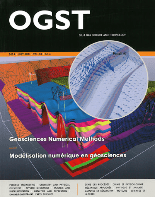
Oil & Gas Science and Technology-Revue d IFP Energies nouvelles
Transforming Knowledge into Energy SolutionsOil & Gas Science and Technology - Revue d'IFP Energies nouvelles, published by EDP SCIENCES S A, is a distinguished journal in the field of energy science, specifically focusing on the latest advancements in oil and gas technologies. Since its transition to Open Access in 1997, the journal has been dedicated to disseminating high-quality research that addresses the challenges and innovations inherent in energy engineering and fuels. With an ISSN of 1294-4475 and an E-ISSN of 1953-8189, this journal holds a significant position in academic circles, reflecting its contributions to sustainable energy solutions. The journal's rankings in Scopus showcase its impact, particularly in the areas of Energy Engineering and Power Technology (Rank #105/224), Chemical Engineering (Rank #131/279), and Fuel Technology (Rank #51/100). As a pivotal resource for researchers, professionals, and students, it aims to foster knowledge exchange and promote innovative technologies essential for the ongoing evolution of the energy sector.
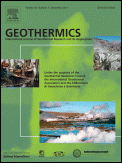
GEOTHERMICS
Unveiling cutting-edge methodologies in geothermal applications.GEOTHERMICS, published by Pergamon-Elsevier Science Ltd, serves as a leading journal in the fields of geology, geotechnical engineering, and renewable energy sustainability. With an established history dating back to 1970, this journal has evolved to become an essential platform for disseminating innovative research and applications in geothermal energy and related disciplines. Its impressive impact factor and consistent performance in prestigious quartiles—currently ranked Q1 in both Geology and Geotechnical Engineering, along with Q2 in Renewable Energy—underscore its significance in the academic community. Although this journal is not Open Access, it provides readers with valuable insights into current trends, methodologies, and technologies that drive the advancement of geothermal science. Researchers, professionals, and students alike will find GEOTHERMICS to be an invaluable resource, fostering knowledge exchange and collaboration in an increasingly important field for sustainable energy solutions.

JOURNAL OF MINING SCIENCE
Exploring Innovations for a Sustainable Mining FutureJOURNAL OF MINING SCIENCE, published by PLEIADES PUBLISHING INC, is a leading platform for research and development in the fields of geology, geotechnical engineering, and engineering geology. With an ISSN of 1062-7391 and E-ISSN of 1573-8736, this journal has established itself as a notable contributor to the mining and earth sciences communities since its inception in 1991. The journal is indexed in prestigious databases and currently holds a Q3 ranking in both geology and geotechnical engineering categories, recognizing the impact and quality of the research it publishes. Although it does not offer open access, it provides extensive insights from cutting-edge studies that appeal to researchers, professionals, and students alike. The Journal of Mining Science aims to disseminate significant advancements in mining technology and its environmental implications, promoting sustainability and innovation within the industry. With its comprehensive scope and commitment to excellence, this journal serves as an invaluable resource for stakeholders in academia and industry striving to enhance their knowledge and practices in mining science.

CHEMICAL AND PETROLEUM ENGINEERING
Pioneering Discoveries in Chemical and Petroleum SciencesChemical and Petroleum Engineering is a prestigious academic journal dedicated to the advancement of knowledge in the fields of chemical engineering and petroleum technologies. Published by Springer, this journal serves as a vital resource for researchers, professionals, and students interested in the intricate processes and innovations that drive these industries. With an ISSN of 0009-2355 and an E-ISSN of 1573-8329, it has established a notable presence since its inception in 1965. Throughout its converged years, the journal has continually published impactful research that contributes to sustainability and efficiency within the sectors. Although it holds a Q3 ranking in Chemical Engineering and Fuel Technology and a Q4 ranking in Energy Engineering and Geochemistry, it is a noteworthy platform for emerging studies, fostering connections among scholars. Readers will find a wealth of information and ideas, but please note that this journal does not currently offer open access options. For those passionate about chemical and petroleum engineering, this journal is an essential part of staying informed and engaged with the latest scientific advancements.
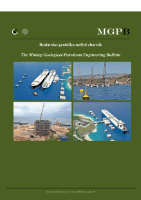
Rudarsko-Geolosko-Naftni Zbornik
Fostering Collaboration for Environmental SolutionsRudarsko-Geolosko-Naftni Zbornik, the esteemed journal published by the University of Zagreb's Faculty of Mining, Geology and Petroleum Engineering, serves as a vital platform for advancing knowledge in the fields of Earth sciences, energy, and geology. With an ISSN of 0353-4529 and an E-ISSN of 1849-0409, this open-access journal has been disseminating high-quality research since 1989, contributing significantly to scientific discourse in Croatia and beyond. As of 2023, it holds an impressive categorization in various quartiles, notably achieving Q2 in Earth and Planetary Sciences and Q3 in several related domains, showcasing its relevance and impact within the academic community. The journal's commitment to quality is reflected in its Scopus rankings, placing it in competitive positions across diverse disciplines. Researchers, professionals, and students alike will find invaluable resources and insights that foster innovation and collaboration in their respective fields, making Rudarsko-Geolosko-Naftni Zbornik an essential read for those dedicated to exploring the complexities of natural resources and environmental challenges.

Journal of Mining Institute
Unlocking Insights in Mining and GeologyThe Journal of Mining Institute, published by SAINT-PETERSBURG MINING UNIVERSITY, stands as a premier platform for disseminating cutting-edge research in the fields of Economic Geology, Geology, and Geotechnical Engineering. With an impressive Q1 ranking in various quartiles for 2023, this journal offers enlightening insights into earth sciences, reflecting its substantial impact within the academic community. The journal, accessible in open access format since 1975, ensures that researchers, professionals, and students can readily access high-quality research articles. The ISSN for the print version is 2411-3336 and E-ISSN 2541-9404, supporting its reach both online and offline. As it converges knowledge from 2017 to 2024, the Journal of Mining Institute serves as an essential resource for understanding contemporary challenges and innovations in mining and geology, encouraging a collaborative exploration of sustainable practices and technological advancements in these critical fields.

Gas Science and Engineering
Fostering Collaboration in Gas Science InnovationsGas Science and Engineering is a premier academic journal published by Elsevier, dedicated to advancing knowledge in the critical domains of energy engineering, fuel technology, and geotechnical engineering. With a notable impact factor that underscores its significance in the field, this journal provides a platform for researchers, professionals, and students to explore cutting-edge research and innovative methodologies. As evidenced by its strong performance in Scopus rankings—placing within the top quartiles for various categories—the journal is recognized for its rigorous peer-review process and commitment to open access, allowing for wider dissemination of knowledge. Based in the Netherlands, Gas Science and Engineering aims to foster collaboration and discussion among scholars and industry experts, making it an essential resource for anyone engaged in the study of gas sciences and related fields.
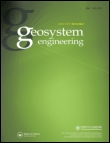
Geosystem Engineering
Shaping policies through impactful geosystem research.Geosystem Engineering, published by Taylor & Francis Ltd, is a prominent academic journal focusing on the interdisciplinary fields of Environmental Engineering, Pollution, and Waste Management and Disposal. With an ISSN of 1226-9328 and an E-ISSN of 2166-3394, this journal has been a significant contributor to the scholarly discussions since its inception in 1998 and continues to publish impactful research up to 2024. As a recognized journal within the Q3 category for its respective fields as of 2023, it serves as a vital platform for researchers, professionals, and students aiming to disseminate findings, share innovations, and address pressing environmental challenges. Although it does not currently offer Open Access options, Geosystem Engineering remains essential for those invested in advancing sustainable practices and technologies in geosystems. The journal delivers critical insights that contribute to the development of policies and practices aimed at improving environmental quality and waste management strategies globally.